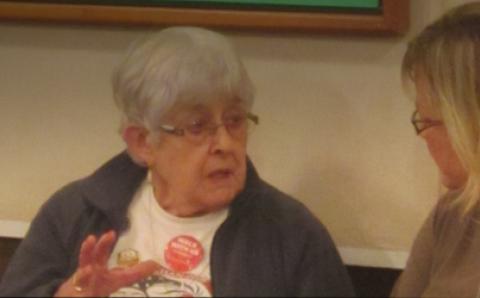I first encountered Gaiman’s prolific and wild imagination when my children and I watched the 2009 movie Coraline, based on the novella of the same name. In this story, an unhappy young girl discovers in her home a marvelous parallel universe, where her Other Mother is kind and attentive, unlike her real mother. Nice, at least, until Other Mother asks to sew buttons into Coraline’s eyes in exchange for eternal life. Who thinks of a plot like that?
After seeing the film, I learned Gaiman had won the prestigious Newbery Medal in 2009 for his young adult novel The Graveyard Book. It tells the story of Nobody Owens, a boy who is brought up by ghosts in a graveyard after his parents are murdered. After reading it, I wondered again: how does he think this up—and dare aim it at a young adult readership?
Gaiman’s recent book The Ocean at the End of the Lane (William Morrow) is, by contrast, a children’s story for adults. The middle-aged narrator returns to Sussex, England, the countryside of his childhood, and a farm “where the barriers between life and death were thin.”
He remembers meeting Lettie Hempstock, a precocious 11-year-old who believed that the farm’s pond was as big as an ocean. That memory leads him to another: when he was 7, he discovered a body near the farm. That suicide unleashed an ancient force of greed, violence, and destruction taking the form of Ursula Monkton, a profoundly evil governess.
Without spoiling the plot too much, I can say that Ursula doesn’t like the narrator and Lettie one bit; rather harrowing (this is not for young readers!) moments ensue. At one point, voices call out to the boy: “How can you be happy in this world? You have a hole in your heart.” Indeed, the book is a fable about becoming an adult, finding contentment outside of greed, giving trust, and accepting sacrifice.
The bookish narrator clearly stands in for Gaiman when he says things like, “Why didn’t adults want to read about Narnia, about secret islands and smugglers and dangerous fairies?” Indeed, Gaiman’s fantasy owes a lot to C.S. Lewis, but also to British humor and the linguistic cleverness of classics like Alice in Wonderland.
While his perspective is not Christian, Gaiman approaches youth and adulthood, good and evil, life and death, with a sense of essential seriousness and style that goes beyond what fantasy literature usually has to offer.
About the Author
Otto Selles teaches French at Calvin College, Grand Rapids, Mich., and attends Neland Avenue Christian Reformed Church in Grand Rapids.








